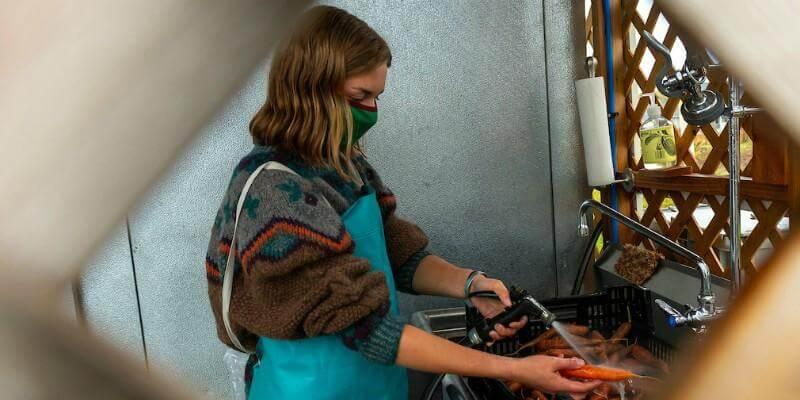The “gig economy”—the transition to short-term, temporary, or project-based work–is here to stay, and the COVID-19 pandemic has accelerated this trend.
Given social distancing imperatives, those who can work from home have established their personal office in an extra bedroom, or at their kitchen table.
The new rules of the workplace have also affected how businesses view the internship, an experience that has traditionally given college students a chance to gain on-the-job work experience, build their resumes, and develop key connections with future employers.
To meet the needs of employers and students in the face of this seismic shift, the University of Vermont is introducing the Micro-Internship Program.
Amanda Van Vranken, manager of the new effort, describes the micro-internship as a short-term, paid professional assignment. Unlike a traditional semester-long or summer internship, micro-internships typically involve between 5 to 40 hours of work accomplished in a flexible time frame and done remotely.
“A micro-internship is a great option for students who want to gain important professional development experience through a shorter-term commitment, which compliments their busy schedules.” she explained.
Advantages for Employers
The UVM Micro-Internship Program is supported by partners including the Vermont Center for Emerging Technologies and the Vermont Small Business Center, non-profit organizations that have long been involved in connecting employers with emerging talent in the state. The university is also partnering with Parker Dewey, a company that provides a platform to facilitate the administration and human resources support, time-consuming tasks that might otherwise prevent small startups from dipping their toes in the internship pool.
“Employers might not have the resources to make another hire during uncertain economic times, but they still have an urgent need for a research study, a survey, or a media project,” says Sam Roach-Gerber, vice president of VCET. “Increasingly they are discovering college students can offer a really strong skill set that makes them perfect short-term hires,” she said.
Companies are interested because they can efficiently and cost-effectively complete projects across departments when they might not have the capacity to hire a long-term intern.
“Micro-internships offer employers some unique opportunities," says Van Vranken. "It helps companies diversify their hiring pools. The Parker Dewey platform offers a convenient way for candidates across the country to access and apply to paid projects."
Parker Dewey reports that over 80% of students selected come from underrepresented backgrounds.
The micro-internship arrangement is also an opportunity to evaluate a student’s performance and work ethic. When it does come time to bring on a new hire, businesses can draw from “in house” candidates who have already demonstrated their abilities.
Traditional internship programs, which usually last several months, can also be an expensive investment. Forbes magazine senior contributor Jason Wingard calculates that a full-time, $12-per-hour intern for 10 weeks equates to $4,800 in payroll, along with the need for a workspace and perhaps a housing or a transportation stipend.
“A micro-intern typically costs between $200 to $600,” he writes.
Land-grant mission
UVM President Suresh Garimella is a big believer in land grant colleges, and he sees connecting businesses with talented students as part of the mission. He created the UVM Office of Engagement this summer in part to build bridges between the business community and student talent.
He notes that Vermont, despite having the state’s lowest-in-the-nation infection rate, is encountering mounting unemployment and the largest the budget deficit in its history due to COVID-19.
“In a post-COVID economy, employers—from tech firms to media companies to nonprofits—will be in dire need of eager-to-learn, dependable, qualified employees,” Garimella wrote in a recent VTDigger op-ed. “To meet this need, we’re significantly enhancing our internship programs, so more students, beginning in their first year, can be exposed to career options in the state by interning with a Vermont employer.”
Garimella says the university’s role to play in Vermont’s post-COVID recovery stretches far beyond the current crisis.
Boosting the health, quality of life and prosperity of Vermont and Vermonters is one of the three core imperatives in the university’s recently released strategic vision Amplifying our Impact.
If your Vermont-based business or organization has a need for a short-term project, contact Amanda Van Vranken, Assistant Director for External Partnerships in the UVM Career Center at Amanda.Van-Vranken@uvm.edu
